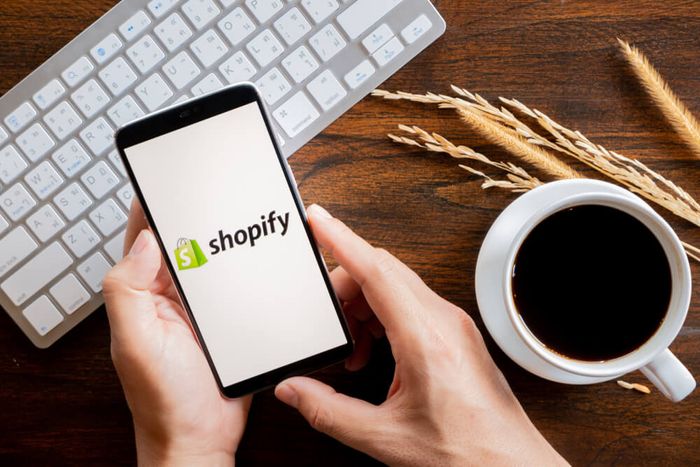Adding Personalization Options to Your Shopify Store in 2025
Stay ahead of the curve by understanding the future of personalization in eCommerce and beyond
Updated November 19, 2024.

In the world of eCommerce, Shopify Search stands out as a versatile platform that opens doors to an abundance of personalization opportunities. Adding personalization options to your Shopify store can significantly increase revenue—up to 20%.
With an extensive app store housing a range of personalization-focused tools, Shopify simplifies the journey for store owners looking to elevate the customer experience. Let's look at how to get started, and the benefits you can expect when adding personalization to your Shopify store.
Meet the Expert
Jameela Ghann is a seasoned online store owner with over a decade of eCommerce experience. Apart from running Alora Boutique, she's also the marketing manager for Fera Product Reviews.
Getting Started: First Considerations
Shopify, known for its open platform, offers a wealth of opportunities for eCommerce personalization.
Personalization is the practice of using available data to create a uniquely tailored eCommerce experience for each individual customer.
Here's how you can get started:
- Easy app integration: Shopify's app store makes it easy to browse and connect the apps of your choice with just a few clicks.
- Start simple: If you're new to personalization, it's advisable to begin with a straightforward and cost-effective app. This approach allows you to assess its effectiveness and understand your specific requirements.
- Progress to advanced solutions: As you gain insights into your personalization needs and witness the impact on your revenue, you can explore more advanced and robust personalization products. While these may come at a higher cost, they often deliver superior results.
By leveraging the array of personalization apps available on Shopify, you can gradually tailor your online store to meet your customers' preferences and boost your business's bottom line.
» Explore Fast Simon's personalization solution to get a head start
What Are the Benefits of Personalization for Your Shopify Store?
- Enhanced customer experience Everyone likes to feel known and valued. Using personalization on your Shopify site will allow you to tailor product recommendations and the overall user experience to each specific customer.
- More conversions When customers see more of what they like, they're more likely to make purchases and convert.
- Better product recommendations Personalization lets you get to know your customers better. In turn, this helps you to supply them with better product recommendations, making them more likely to complete a transaction.
- Increased brand loyalty If your customers feel well looked after, and enjoy the recommendations that you make, they'll keep coming back. Personalization helps you to improve customer retention rates.
» Delve deeper into AI's benefits for eCommerce personalization
Shopify Personalization in Action: BrightMinds
BrightMinds is a children's educational online store. Because of their high stock inventory, they found it challenging to deliver relevant results to their different audiences.
After implementing personalization, their conversion rate and AOV increased:
- 3x more conversions from search
- 5x more conversions from product recommendations
- 18% of store revenue driven by personalization
» Increase your website search results with personalization options
Customer Segmentation: The Key to Personalization
One of the critical aspects of personalization is using customer segmentation. Here's how to approach it:
- Start with the basics Begin by segmenting users based on readily available information like device type, operating system, traffic source, and whether they're new or returning visitors.
- Incorporate user behavior Next, consider user behavior and interests. For instance, display recently viewed products exclusively to users who have viewed at least five products on your site. This approach ensures relevance and avoids overwhelming visitors with premature product suggestions.
- Gradually refine segments As your user base grows, delve into more advanced segmentation strategies. Explore RFM (Recency, Frequency, Monetary) segments or target users with specific interests in particular brands or product categories. The key is to adapt your segmentation to your expanding audience.
- Leverage user data wisely With a substantial user base, you can layer multiple segmentation criteria, including zero-party data, to create highly specialized segments. These narrower segments empower you to deliver precise personalization that can significantly boost your revenue.
RFM segments customers by evaluating their "recency (how long ago they made a purchase), frequency (how often they make purchases), and monetary value (how much money they spend)."
Remember that the size of your user base matters when creating narrow segments. Building too-specific segments with a limited number of users won't yield noticeable results. As your user base grows, so does your ability to personalize effectively and drive tangible revenue growth through tailored user experiences.
» Discover the difference between customer personalization vs segmentation
Moving Forward
As we look to the future, personalization is already harnessing the power of AI, with innovations like ChatGPT leading the way. Here's why it's essential:
- Immediate adoption for e-tailers: For any e-tailer not yet utilizing personalization, now is the time to embrace it. Personalization isn't merely a trend—it's a necessity for survival. Those who neglect it risk falling behind in the market, leading to higher costs and lower revenues.
- Evolving marketing landscape: Personalization will become a standard component of every e-tailer's marketing toolkit in the coming years. Alongside established ad and analytical tools, personalization tools will play a pivotal role.
- Expanding beyond eCommerce: The future holds a promise of personalized experiences extending beyond eCommerce. Industries such as FinTech, banking, telecommunications, and others, not traditionally focused on online sales, will increasingly adopt personalization to enhance customer interactions across various channels.
As personalization and AI evolve, staying ahead of the curve is imperative for businesses aiming to thrive in the dynamic market landscape.
eCommerce's Future: Evolution of Personalization
Shopify offers versatile personalization opportunities that can benefit businesses in many ways. Shopify's app store simplifies personalization, making it accessible for all store owners.
Starting with cost-effective apps and progressing to advanced solutions is advisable, and implementing user segmentation is vital for success. Looking ahead, AI-enhanced personalization is essential for e-tailers to stay competitive.




